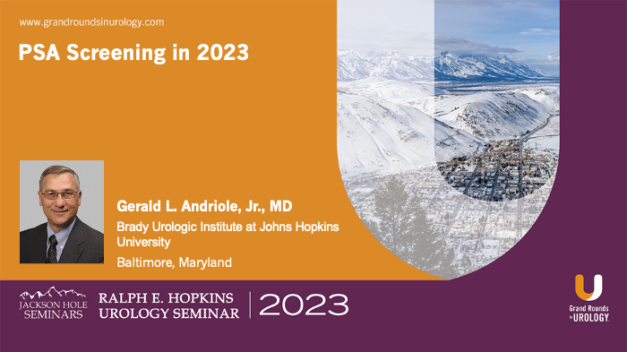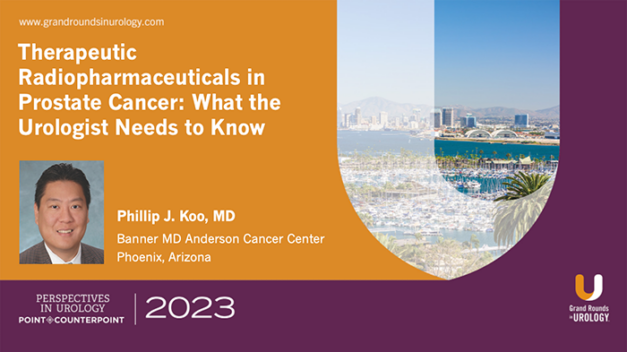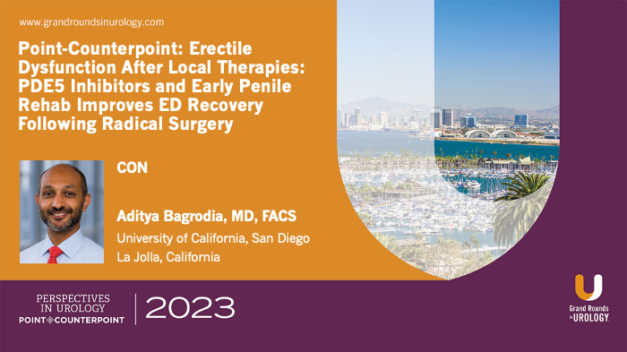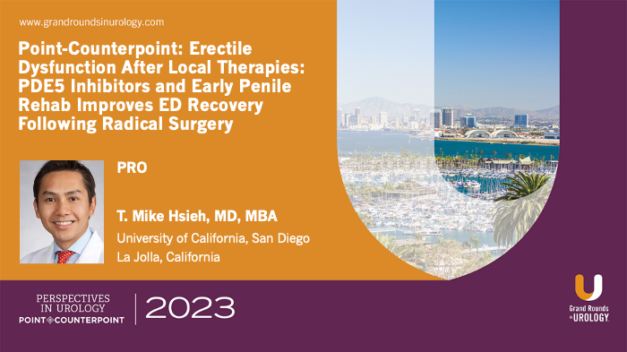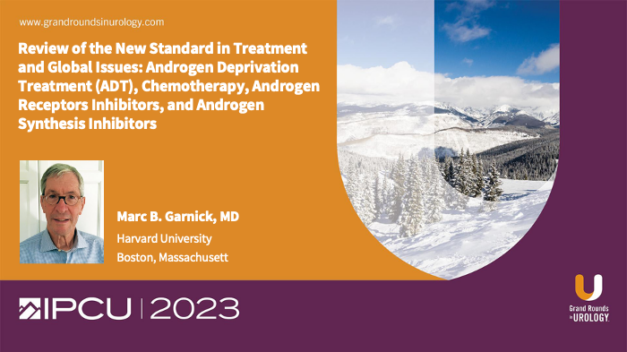PSA Screening in 2023
Gerald L. Andriole, Jr., reviews evidence supporting a more comprehensive family history and biomarkers in screening and treating prostate cancer. Andriole underscores the power of a well-taken family history. He suggests doctors counsel patients on their hereditary risk of prostate cancer, emphasizing the importance of one diagnosed high risk family member, to reduce the rate of mortality.
Describing the Germline Mutations in Metastatic PCa, Andriole recommends all patients with prostate cancer who have certain characteristics be encouraged to speak to their physicians about whether they may need genetic testing for an inherited mutation. When looking in detail at polygenic risk scores (GRS,) knowledge of high GRS decreased mortality rate.
Andriole highlights the Prompt Test, the direct to consumer, poly-genomic test in the US. In comparison, the UK Biobank data compares prevalence and hazard ratio to show the frequency is higher, some predict cancer aggressiveness. He expects to hear a lot about the prompt test in future.
Dr. Andriole recommends identifying patients with clinically significant PCa earlier through a lower PSA cutpoint. He suggests using image guided Micro US or MRI, or a transperineal biopsy to show potentially indicative biomarkers.
Read More
